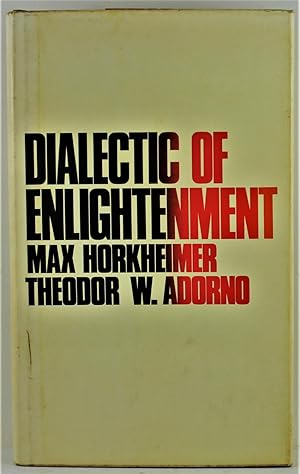


A revised version was published in 1947 by Querido Verlag in Amsterdam with the title Dialektik der Aufklärung.

Adorno, the book made its first appearance in 1944 under the title Philosophische Fragmente by Social Studies Association, Inc., New York. Written by Frankfurt School philosophers Max Horkheimer and Theodor W. It has had a major effect on 20th century philosophy, sociology, culture, and politics, inspiring especially the New Left of the 1960s and 1970s. Whereas the unconscious colossus of real existence, subjectless capitalism, inflicts its destruction blindly, the deludedly rebellious subject is willing to see that destruction as its fulfillment, and, together with the biting cold it emits toward human beings misused as things, it also radiates the perverted love which, in the world of things, takes the place of love in its immediacy.ĭialectic of Enlightenment (German: Dialektik der Aufklärung) is one of the core texts of Critical Theory explaining the socio-psychological status quo that had been responsible for what the Frankfurt School considered the failure of the Enlightenment. To the enlightenment, that which does not reduce to numbers, and ultimately to the one, becomes illusion. It makes the dissimilar comparable by reducing it to abstract quantities.

Bourgeois society is ruled by equivalence.


 0 kommentar(er)
0 kommentar(er)
